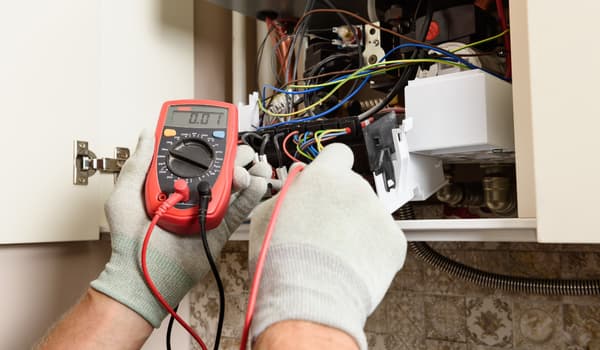It’s safe to say that we tend not to have a close relationship with our boilers – with their varying different controls and buttons, many of us like to leave well alone in case something goes wrong. But when our boilers break down and we can honestly say that we didn’t touch them, it can be even more frustrating!
Apart from the obvious advice of making sure that our boilers are serviced, problems can still crop up, especially with really old and inefficient boilers. There are some tell-tale signs that it might be time to consider upgrading your boiler, especially when failures in your system might be a danger to you and your family.
New Boiler Signs:
-
1. The Smell
A fully operational and safe boiler should never omit an odour, therefore any strange smells might indicate that there is a serious issue with the boiler and namely carbon monoxide might b being omitted.
Although carbon monoxide is odourless, a leak can cause the boiler to not burn correctly which can cause a strange smell which must be investigated by a professional as soon as you notice this. The usual symptoms of carbon monoxide poisoning are headaches, shortness of breath, nausea and unconsciousness. Should you have any of these symptoms you should evacuate your home immediately and call Transco on 0800 111999 to have any potential leaks inspected.
We would always recommend a carbon monoxide alarm, as the dangers of carbon monoxide are deadly.
-
2. Increasing Energy Bills
It is no secret that an A rated condensing boiler could save you up to £320 per year in comparison to an old inefficient boiler. Inefficient boilers cost more to operate as they do not work as efficiently as modern condensing boilers as more gas is wasted when trying to heat up the system.
As technology has developed, the integral workings of boilers have too. In a nutshell, the heat exchanger is designed to transfer heat between two fluids, therefore the larger the heat exchanger the more heat can be exchanged. Heat exchangers within A rated boilers are a lot larger, which means more heat can be transferred to either the central heating system or hot water, making them more efficient. As they are more efficient, less gas is used in the process which in turn saves you money.
In the same way that advances have been made to boiler technology, huge leaps have been made in the way that we control and monitor our heating. Smart heating controls along with generic heating controls aid massively in the reduction of costs as they are more compatible and specifically designed to fit in with our lives. Meaning ultimately, that we can programme our heating to compliment when we are at home therefore potentially cutting out burning gas when we simply don’t need to.
-
3. Leaking Boilers
A leaking boiler could mean the beginning of the end. Whilst some leaks can be down to some nuts coming slightly loose, others can indicate that there are some major problems with the integral parts of the boiler, which if left, could lead to rust and corrosion which will eventually render the boiler completely unusable.
The leak themselves can also cause further issues – such as structural damage to your home, which can be costly to repair. In worst case scenarios, it can result in major renovations being required as repairs simply cannot be made. If you find a leak, make sure you call an engineer to come and make sure that it is placed under control.
-
4. Noisy Boilers
Modern boilers shouldn’t sound like a brass band in your own home, they create more of a low hum that many of us won’t even notice. So if all of a sudden you hear banging, whirring and clunking sounds, you should turn your boiler off to prevent any additional damage and call an engineer.
Whilst many faults can be easily fixed, the overall safety of the appliance is paramount. If your engineer has told you that the boiler is not safe for use, don’t be tempted to turn it back on.
Related Articles
- How to Keep Your Costs Down This Winter
- What Does Gas Boiler Service Involve?
- How You Can Finally Take Control of Your Heating
- What Temperature Should You Set Your Central Heating to When It’s Cold?
- Heat Pump Funding – Have You Heard of the Boiler Upgrade Scheme?




